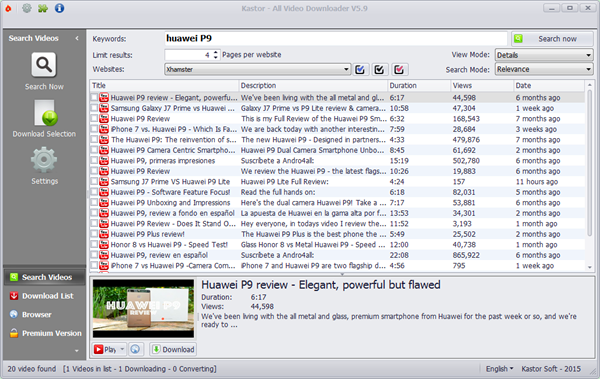


The above function basically takes the file url to download and the pathname of the folder to save that file into. Progress = tqdm(er_content(1024), f"Downloading ", total=file_size, unit="B", unit_scale=True, unit_divisor=1024) # progress bar, changing the unit to bytes instead of iteration (default by tqdm) Response = requests.get(url, stream=True)įile_size = int(("Content-Length", 0))įilename = os.path.join(pathname, url.split("/")) # download the body of response by chunk, not immediately # if path doesn't exist, make that path dir Now that we have a function that grabs all image URLs, we need a function to download files from the web with Python, I brought the following function from this tutorial: def download(url, pathname):ĭownloads a file given an URL and puts it in the folder `pathname` Now let's make sure that every URL is valid and returns all the image URLs: # finally, if the url is valid We're getting the position of '?' character, then removing everything after it, if there isn't any, it will raise ValueError, that's why I wrapped it in try/except block (of course you can implement it in a better way, if so, please share with us in the comments below). There are some URLs that contains HTTP GET key-value pairs that we don't like (that ends with something like this "/image.png?c=3.2.5"), let's remove them: try: Now we need to make sure that the URL is absolute: # make the URL absolute by joining domain with the URL that is just extracted However, there are some tags that do not contain the src attribute, we skip those by using the continue statement above. To grab the URL of an img tag, there is a src attribute. I've wrapped it in a tqdm object just to print a progress bar though. This will retrieve all img elements as a Python list. # if img does not contain src attribute, just skip The HTML content of the web page is in soup object, to extract all img tags in HTML, we need to use soup.find_all("img") method, let's see it in action: urls = įor img in tqdm(soup.find_all("img"), "Extracting images"): Soup = bs(requests.get(url).content, "html.parser") Second, I'm going to write the core function that grabs all image URLs of a web page: def get_all_images(url): Urlparse() function parses a URL into six components, we just need to see if the netloc (domain name) and scheme (protocol) are there. Open up a new Python file and import necessary modules: import requestsįrom urllib.parse import urljoin, urlparseįirst, let's make a URL validator, that makes sure that the URL passed is a valid one, as there are some websites that put encoded data in the place of a URL, so we need to skip those: def is_valid(url):
All image downloader install#
To get started, we need quite a few dependencies, let's install them: pip3 install requests bs4 tqdm Have you ever wanted to download all images on a certain web page? In this tutorial, you will learn how you can build a Python scraper that retrieves all images from a web page given its URL and downloads them using requests and BeautifulSoup libraries.


 0 kommentar(er)
0 kommentar(er)
